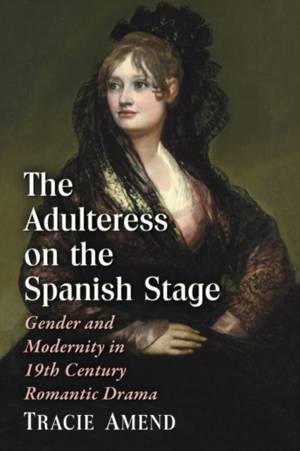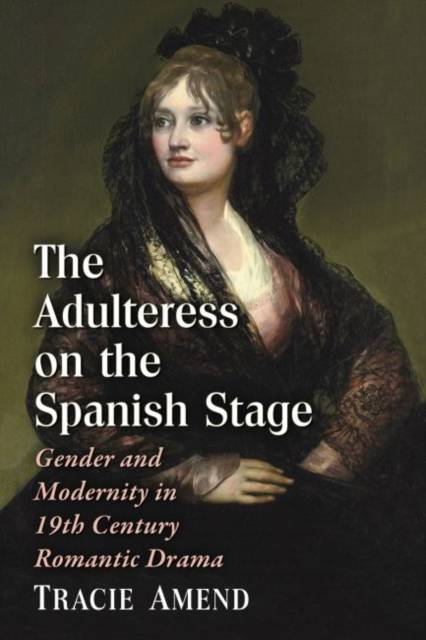
- Retrait gratuit dans votre magasin Club
- 7.000.000 titres dans notre catalogue
- Payer en toute sécurité
- Toujours un magasin près de chez vous
- Retrait gratuit dans votre magasin Club
- 7.000.000 titres dans notre catalogue
- Payer en toute sécurité
- Toujours un magasin près de chez vous
The Adulteress on the Spanish Stage
Gender and Modernity in 19th Century Romantic Drama
Tracie Amend
Livre broché | Anglais
76,45 €
+ 152 points
Description
As early as 1760 and as late as 1920, Romantic drama dominated Peninsular Spanish theater. This love affair with Romanticism influenced the formation of Spain's modern national identity, which depended heavily on defining women's place in 19th century society. Women who defied traditional gender roles became a source of anxiety in society and on stage. The adulteress embodied the fear of rebellious women, the growing pains of modernity and the political instability of war and invasion. This book examines the conflicted portrayal of women and the Spanish national identity. Studying the adulteress on stage, the author provides insight into the uneasy tension between progress and tradition in 19th century Spain.
Spécifications
Parties prenantes
- Auteur(s) :
- Editeur:
Contenu
- Nombre de pages :
- 228
- Langue:
- Anglais
Caractéristiques
- EAN:
- 9780786496921
- Date de parution :
- 04-05-15
- Format:
- Livre broché
- Format numérique:
- Trade paperback (VS)
- Dimensions :
- 152 mm x 226 mm
- Poids :
- 317 g







